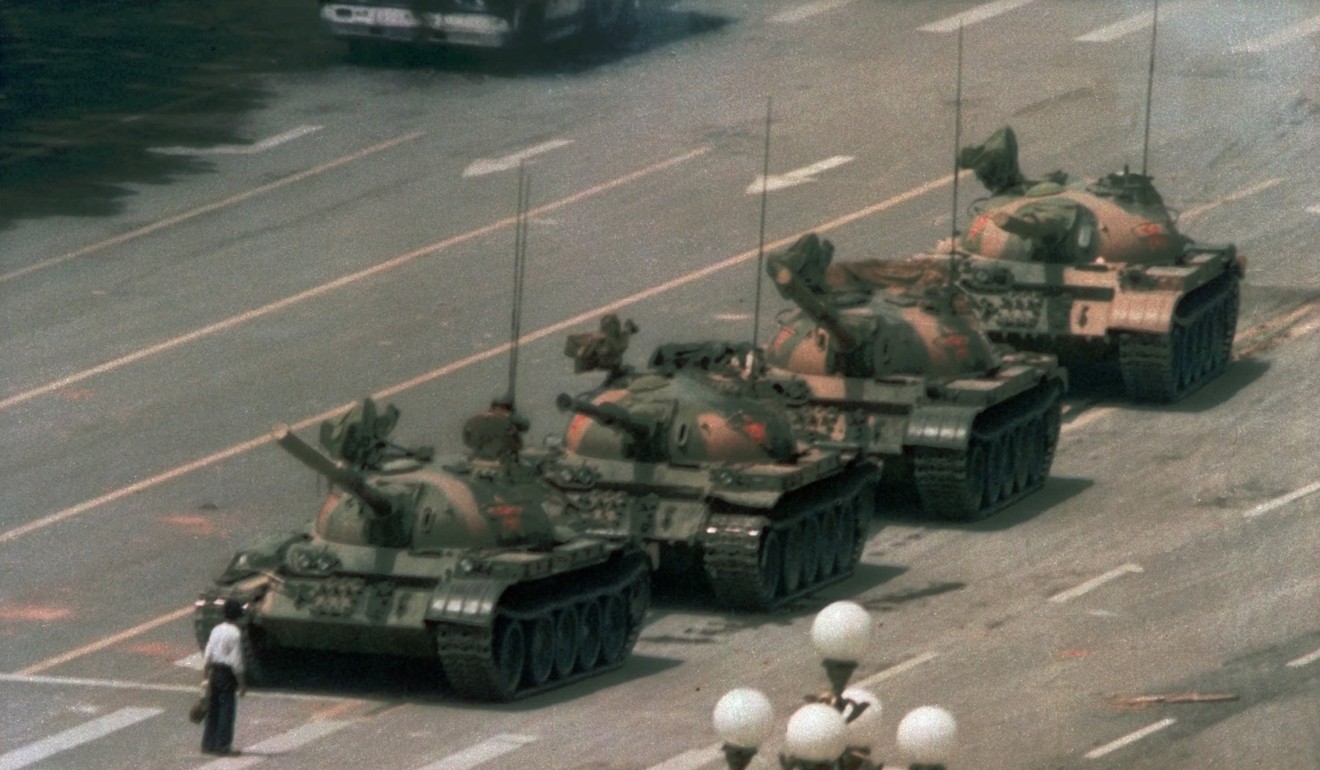There is every reason why Beijing must revisit its Tiananmen Square verdict
- Much has changed in the 30 years since a bloody military crackdown on a democracy protest led by students in Tiananmen Square shocked the world, but in failing to recognise the patriotism of the movement the country has still not emerged fully from this dark chapter in its history

Thirty years ago today a military crackdown to clear a student-led pro-democracy protest from Beijing’s Tiananmen Square left hundreds, perhaps more than 1,000 dead. The killings shocked the world and have had a lasting impact on China including Hong Kong in particular.
Much has changed since then. Focus on economic development that has lifted hundreds of millions from poverty has helped Beijing in its efforts to sweep the events of June 4, 1989, under the carpet. But they still haunt the leadership.
At this time, especially, it is things that have not changed that still trouble many people, such as the official verdict that the order to open fire on defenceless civilians was justified, a taboo on discussion of the tragedy, and refusal to reconsider vindication of the protesters or reconciliation with grieving families.
That is not to forget the polarisation of Hong Kong, which supported the democracy movement and shared its dreams. Tonight’s candlelight vigil of remembrance in Victoria Park for the victims is a reminder.
Defence Minister General Wei Fenghe’s remarks at the weekend defending the crackdown to an overseas audience appeared to dash hopes of vindication of the protest movement any time soon.
He said the use of the military to repress it was a correct response to political turbulence and China had enjoyed stable development since.

The Communist Party may have seen the protest as a threat to its political legitimacy and the unity of its top leadership amid opening up and economic reform, not that long after it had emerged from the chaos of the Cultural Revolution.
But, despite an attempt to induce June 4 amnesia, the crackdown has left a deep wound not only in the hearts of many families, but in the whole nation. Every year, at this time, the wound reopens.
The country has still not emerged fully from this dark chapter in its history.
Obsession with stability
It is time for Beijing to reflect and make amends by recognising the patriotism of the movement so that China can move on.
Wei’s comment linking the crackdown to stable growth, in a question-and-answer session after his speech at the Shangri-La Dialogue in Singapore, reflects an official obsession with stability which accounts for reluctance to reopen the case and readdress the issues. Such a rigid view of stability risks being counterproductive.
It recalls a letter to the leadership in 1997 from former party leader, the late Zhao Ziyang, a protest sympathiser who was removed and placed under house arrest.
He wrote that “people won’t forget about it no matter how long we sit on this. It is better we solve this issue [of reversing the verdict] by our own initiative … when the country is stable and the people rational”.
Not only can the leadership not count on people to just forget, but the reluctance to revisit the issue risks damage to the party’s standing and alienation of liberal elements. It is for China’s own good to not continue sweeping June 4 under the carpet.
Whether swept under the carpet across the border or commemorated in Hong Kong, June 4 weighs heavily in both places. This was illustrated in our six-part series over the past two weeks. It remains influential in perceptions of China, thanks partly to the lasting impact in Hong Kong, where the crackdown is still a factor in the discord between local democrats and Beijing.
The city is now known the world over as the host, on Chinese soil, of the biggest June 4 commemorative event. If the vigil is to be observed by future generations, it is to be hoped that it is transformed sooner or later into a celebration of vindication and patriotism.
Freedom of speech
As demonstrated in our series by the comments of scholars and analysts, and the writings of Zhao and former premier Li Peng, a revision of the official verdict would be politically fraught.
Whereas Zhao had urged early revision, Li, who played a role in Zhao’s downfall, said in a memoir published in 2004 that any challenge to the official narrative should be seen as an attempt to divide the party. Indeed there is a consensus among scholars and analysts that revisiting the issue could lead to renewed divisions within the party.

Fear of unrest prompted the party to purge those who sympathised with the student movement and prioritise political stability. For three decades it has resisted revisiting the period and stifled debate to maintain stability and its own survival.
According to observers and insiders, however, such a strategy and maintaining the authoritarian line comes at the price of a lack of checks and balances that would strengthen its ability to face challenges.
There is also a price to pay in criticism and questioning at home and abroad – the question posed to Wei is evidence of that – and in winning the hearts and minds of its own people and in particular Hongkongers.
Beijing may never have been happy with Hong Kong’s role in the democracy movement. But until it revisits the verdict, it has to live with the fact that tonight’s vigil is a living symbol to the world of Hong Kong’s right to freedom of speech and assembly under “one country, two systems”.
Regardless of debate in recent years whether June 4 is relevant to Hong Kong, it is to be hoped the symbolism of the annual candlelight vigil is maintained. After all, democratic development in China means a lot to this city.